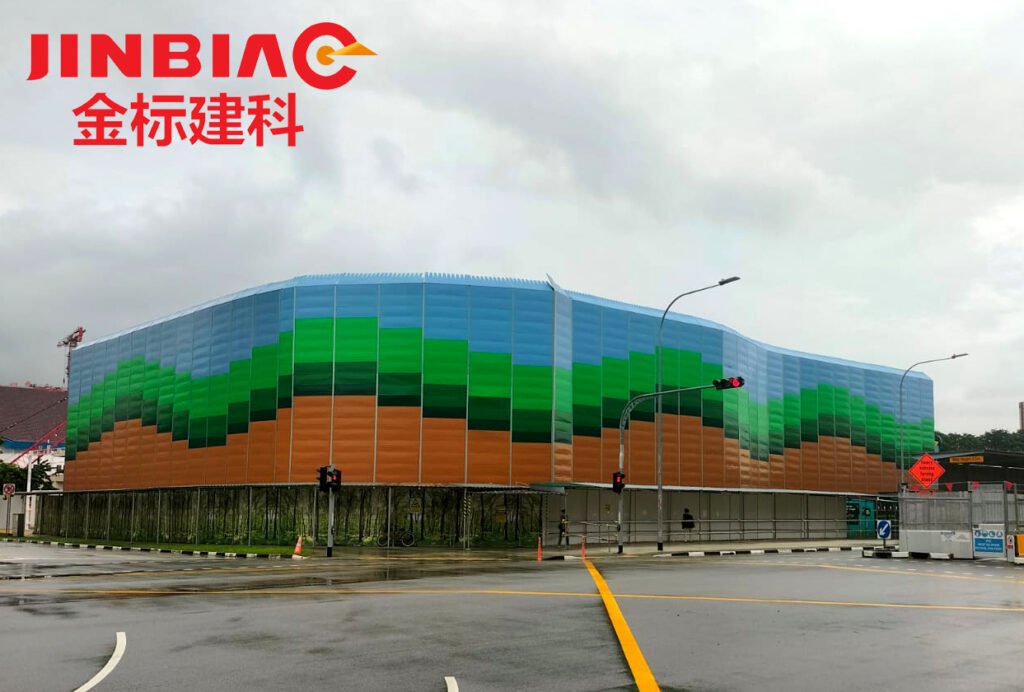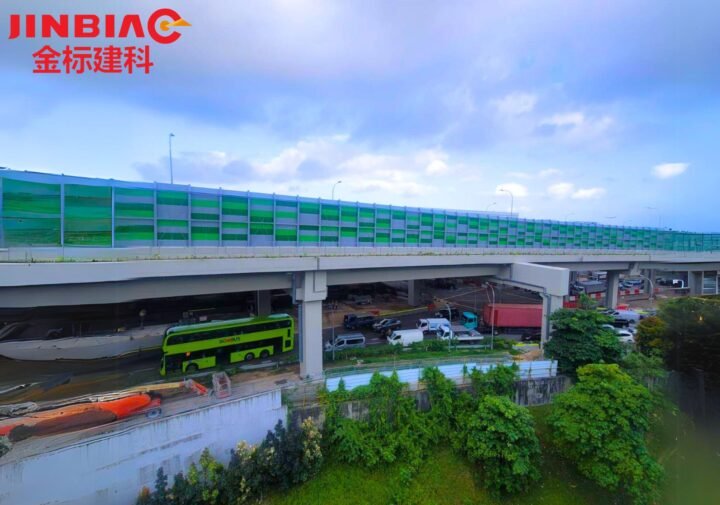
Whether you find tranquillity in your outdoor space or you’re looking to shield your home from urban clamour, selecting a noise barrier is a significant choice with long-term impacts. From backyard fence options to innovative acoustic walls, the variety can be as overwhelming as the unwanted noise.
Here’s a breakdown of the seven key factors to consider before choosing a noise barrier for your property, ensuring a decision that harmonises peace and practicality.
1. Noise Reduction Effectiveness
The primary objective of any noise barrier in the market is to reduce sound transmission effectively. The barrier’s design and the materials used play a crucial role in how much noise they can block. Dense, heavy materials like concrete or specialised acoustic panels are excellent choices for high-traffic areas with loud noise.
On the other hand, options like dense foliage or soundproof windows might suffice for lower noise pollution, offering a lower cost and easier installation. It’s essential to understand the specific noise levels in your area and choose a barrier with an appropriate noise reduction rating (NRR) to achieve optimal results.
2. Aesthetics and Property Value
A noise barrier need not be an eyesore. In fact, it can add to your property’s aesthetics when chosen wisely. Consider natural barriers such as hedges or bamboo as they add a green, lush element to your landscaping.
For a more modern look, opt for sleek composite materials or decorative acoustic panels that not only provide noise reduction but also enhance the visual appeal of your property. A well-chosen barrier can increase your property’s value, making it a worthwhile investment.
For built structures, ensure the design complements your property’s style. Aesthetically pleasing barriers can even enhance your property’s value, providing an enjoyable outdoor space and a visually appealing addition to your home.
3. Durability and Maintenance
Long-term performance is a significant consideration, especially for the budget-conscious. Look for materials that are resistant to weathering, whether it’s the harsh rays of the sun, torrential rainfall, or bitter cold.
Regular maintenance will also be necessary to ensure longevity, so it’s vital to choose a material that’s durable and easy to maintain. Consider materials like vinyl, aluminium, or composite that are low maintenance and can withstand various weather conditions.
4. Cost and Budget Considerations
The cost of a noise barrier can vary significantly depending on the material, size, and complexity of installation.
Consider not only the upfront cost but also the long-term savings — more expensive materials like concrete may require less upkeep over time, while cheaper options might need replacing more often.
Look for a balance that meets your budget and quality needs, ensuring it’s a sound investment. Additionally, consider any additional costs for permits or professional installation services.
5. Environmental Impact
Your personal environmental stance and any local nature preservation laws may influence your choice of a noise barrier. Opt for eco-friendly materials like recycled plastic, bamboo, or sustainably sourced wood.
Additionally, consider how the barrier could impact natural habitats and wildlife in your area. Avoid disrupting ecosystems by researching the potential effects of your chosen material on the environment.
Sustainable materials such as recycled plastics or bamboo not only provide a noise solution but also contribute to environmental conservation. They can also offer benefits like versatility and longevity, delivering both eco-friendly and noise-reducing advantages to your property.
6. Local Regulations and Permits
Before committing to a noise barrier, it’s essential to research and understand the regulations in your area. Some regions have strict guidelines on the height and design of barriers or may even require a permit for installation.
Ensure compliance with these rules to avoid future legal issues or blockage of your noise barrier project. Consulting with local authorities or hiring a professional can help navigate these regulations and ensure a smooth installation process.
7. Installation Flexibility
Your property’s layout and the purpose of the noise barrier will dictate the kind of installation you will require. Some barriers, like hedges, can be simple DIY projects, while others, such as concrete walls, may need professional installation.
Consider the effort and cost associated with installation to choose the option that best fits your property and needs. Flexible installation options like modular barriers can provide the convenience of customisation and ease of installation, making them a popular choice for many homeowners.
Conclusion
Choosing a noise barrier for your property is not a decision to be taken lightly. It requires careful consideration of various factors to ensure maximum effectiveness and long-term satisfaction. Considering these seven key factors, you can make an informed decision that meets your needs and adds value to your property.
Remember, the right noise barrier can not only reduce unwanted sound but also enhance the aesthetics and overall quality of your outdoor space.
Don’t let the overwhelming variety of options discourage you from creating a peaceful and harmonious environment on your property. With the right noise barrier, you can enjoy peace and quiet without compromising on practicality or style.
Hebei Jinbiao is a leading company in Noise Barrier products and Fencing products in Singapore. We guarantee to provide you with the most high-quality Sound Barrier and Fencing products along with our dedicated assistance. Do not hesitate to contact us. We are looking forward to helping you solve your noise issues, safety issues and protecting you from noise pollution as well as ensuring your safety.

